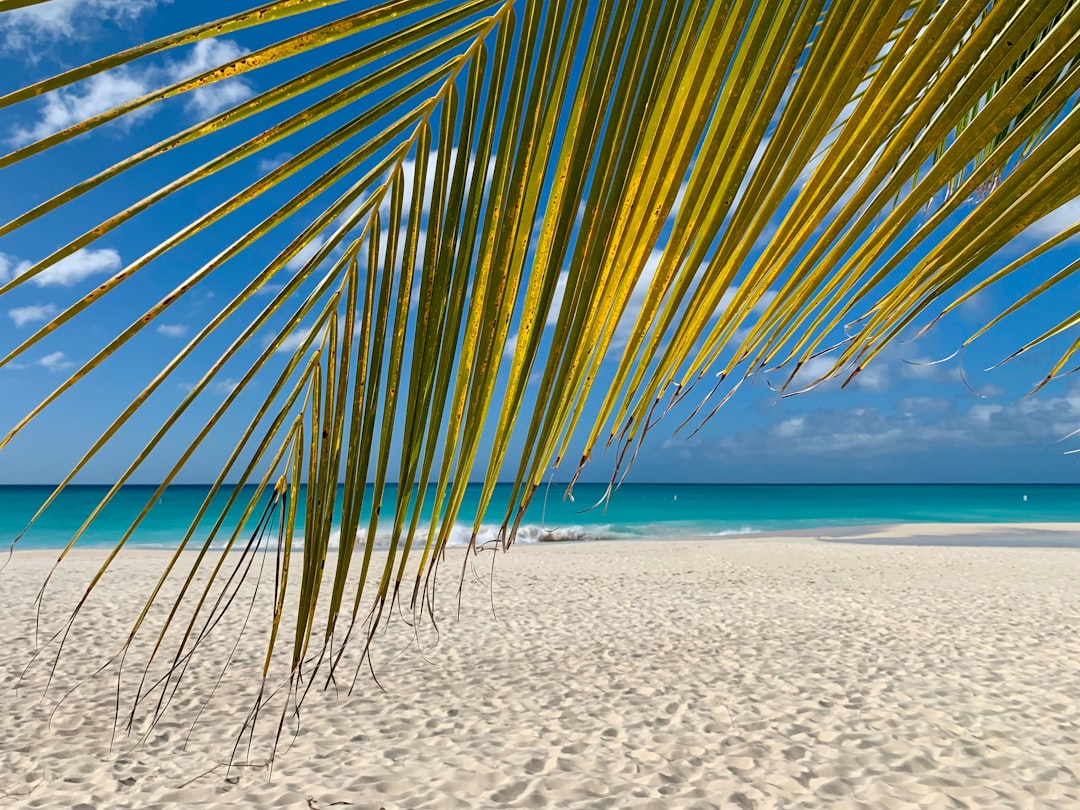Island Living: Embracing Traditions, Family, and Nature in the Caribbean
Growing up in the Caribbean: A unique experience of island living characterized by a strong sense of community, connection to nature, cultural traditions, outdoor activities, and the influence of family and community values on upbringing and identity.
Island Living in the Caribbean: A Unique Experience
The allure of island living in the Caribbean is truly one-of-a-kind. The strong sense of community and connection to nature creates an environment where children have the freedom to explore and appreciate the natural beauty that surrounds them. For instance, in the Caribbean, it's not uncommon for children to spend their afternoons climbing mango trees, collecting seashells on the beach, or playing in the warm, turquoise waters. This unique blend of outdoor experiences fosters a deep appreciation for the environment and a sense of wonder at the natural world.
Moreover, the slower pace of life in the Caribbean encourages a strong emphasis on traditions and family values. The close-knit relationships within families and communities are a central part of island living, providing a sense of security and belonging. For example, family gatherings and community events often revolve around vibrant celebrations of cultural traditions and customs, reinforcing the importance of heritage and shared experiences. This nurturing environment shapes the upbringing of individuals, instilling a deep-rooted connection to their cultural identity and values that lasts a lifetime.
The Caribbean lifestyle weaves together the beauty of the natural surroundings and the rich tapestry of traditions, creating a truly unique experience that shapes the identity and values of individuals. It's a blend of relaxation, community, and tradition that leaves an indelible mark on those who grow up in the islands, fostering a deep appreciation for the environment and a strong sense of belonging within their communities.
The Allure of Island Living
Growing up in the Caribbean provides a unique and enchanting experience, defined by the captivating allure of island living. The strong sense of community is a hallmark of Caribbean life, where neighbors are not just neighbors but an extension of one's family. The genuine warmth and support within the community create an environment where children feel safe to explore and play, fostering a deep sense of belonging and togetherness. For instance, children often freely roam the neighborhoods, engaging in outdoor games and activities with friends, making the most of the natural beauty that surrounds them, from lush greenery to pristine beaches.
Moreover, the slower pace of life, while it may be occasionally exasperating, contributes to the allure of island living. This unhurried lifestyle allows for the preservation of traditions and customs. It is a place where family gatherings are not mere events but beloved traditions, rich with cultural significance and warmth. For instance, the annual Notting Hill Carnival is a vibrant celebration of Caribbean culture. It is a time when families come together to revel in the music, dance, and delectable cuisine, creating cherished memories that continue to shape the lives of individuals well into adulthood. This emphasis on traditions and family values underscores the unique allure of growing up in the Caribbean, leaving an indelible mark on the identity and values of its people.
 Cultural Traditions and Customs
Cultural Traditions and Customs
Growing up in the Caribbean means being surrounded by a rich tapestry of cultural traditions and customs that are deeply ingrained in everyday life. From the vibrant celebrations of events like the Notting Hill Carnival to the close-knit family dynamics, these traditions play a pivotal role in shaping the identity and values of individuals.
The Notting Hill Carnival, a spectacular display of Caribbean culture, is a prime example of how cultural traditions influence daily life in the Caribbean. This iconic event brings together people from all walks of life to celebrate the region's music, dance, and cuisine, fostering a sense of unity and community spirit. The emphasis on family values and togetherness during the carnival reflects the deep-rooted importance of kinship and communal bonds in Caribbean culture. These traditions not only provide a source of joy and celebration but also instill a strong sense of identity and belonging in individuals as they grow up in the Caribbean islands.
Furthermore, the influence of these cultural traditions extends beyond the carnival, permeating family dynamics and community events. From traditional music and dance to culinary practices and religious ceremonies, each aspect of Caribbean culture contributes to the unique upbringing of individuals, instilling in them a deep appreciation for their heritage and a strong sense of community belonging. The enduring impact of these customs on the values and worldview of individuals showcases the profound influence of Caribbean traditions on the shaping of identity and character.
Outdoor Activities and Natural Beauty
Growing up in the Caribbean provides a unique opportunity for children and families to engage in a wide range of outdoor activities that are deeply rooted in the natural beauty of the islands. From swimming in the crystal-clear waters of the Caribbean Sea to hiking through the verdant rainforests, there is no shortage of adventures to embark on. For example, children often spend their days building sandcastles on the beaches, snorkeling to observe the colorful marine life, and playing beach cricket with friends and family, fostering a love for the natural environment from a young age.
The natural beauty of the Caribbean is not only a backdrop for these activities but also serves as a source of solace and healing. The islands' paradisiacal beaches and lush landscapes promote relaxation and provide a natural remedy for stress and fatigue. For instance, many Caribbean families have a deep-rooted tradition of using natural remedies, such as aloe vera for sunburns and coconut oil for various ailments, passed down through generations. This close connection to the natural world instills a profound respect for the environment and a deep understanding of the healing properties it offers. This emphasis on the restorative power of nature shapes the lifestyle and well-being of individuals, fostering a strong bond with the natural world that continues into adulthood.
 Community and Family Values
Community and Family Values
Growing up in the Caribbean is deeply intertwined with the values of community and family, which significantly shape the upbringing of individuals. The concept of family extends beyond the immediate household and encompasses a broader network of relatives, including aunts, uncles, and cousins. This extended family structure creates a strong bond, with family members often living in close proximity to each other. As a result, spending quality time with relatives is a cherished and integral part of the Caribbean lifestyle. Whether it's gathering for a traditional Sunday meal, celebrating special occasions, or simply enjoying leisure time together, family gatherings are central to the Caribbean way of life, fostering a sense of unity and belonging.
Moreover, community values in the Caribbean contribute to the development of robust support systems. The close-knit nature of Caribbean communities fosters a spirit of cooperation and mutual assistance. Neighbors look out for each other, lending a helping hand in times of need and celebrating each other's successes. This communal support network not only provides a safety net but also creates a sense of interconnectedness, where everyone's well-being is intertwined with the collective welfare of the community. These values are instilled in individuals from a young age, teaching them the importance of empathy, cooperation, and solidarity within their communities. As a result, Caribbean children grow up understanding the significance of contributing to the greater good and the rewards of fostering strong communal ties.
In essence, community and family values are deeply embedded in the fabric of Caribbean society, influencing the daily lives of its people and shaping their perspectives on relationships, cooperation, and mutual support. These values are not only instrumental in the upbringing of individuals but also contribute to the unique and enriching experience of growing up in the Caribbean islands.
 Education, Cuisine, and Beyond
Education, Cuisine, and Beyond
The education system in the Caribbean islands is a crucial aspect of children's upbringing, shaping their experiences and knowledge in a culturally diverse environment. With a blend of influences from various cultures, the educational experience in the Caribbean reflects the rich tapestry of traditions and customs found in the region. For example, schools often celebrate diverse cultural events, allowing students to learn about and appreciate different customs, languages, and historical backgrounds. This exposure fosters a deep sense of cultural awareness and understanding from a young age, influencing the way children perceive the world around them and shaping their values.
Moreover, the local cuisine in the Caribbean islands is not just about food; it is a cornerstone of family life and cultural heritage. Traditional dishes, such as ackee and saltfish in Jamaica or callaloo in Trinidad and Tobago, are not only flavorful but also carry historical and social significance. The preparation and sharing of these meals often involve family members coming together, passing down recipes, and sharing stories, creating a strong sense of connection and tradition within the family unit. This communal aspect of food is deeply ingrained in Caribbean culture, reinforcing the importance of togetherness and collective experiences in the upbringing of children.
In addition to the educational and culinary influences, family businesses are prevalent in the Caribbean, providing children with a unique perspective on entrepreneurship, hard work, and gratitude. For instance, many children grow up assisting in family-owned enterprises such as beachside restaurants, craft shops, or rental services. This hands-on involvement instills a strong work ethic, a deep appreciation for the value of labor, and a sense of pride in contributing to the family's livelihood. These experiences not only shape the practical skills of children but also instill core values that are integral to their identity and outlook on life.
Conclusion
Growing up in the Caribbean is a unique experience that comes with its own set of advantages and challenges. The strong sense of community and connection to nature is a hallmark of island living, providing children with the opportunity to spend a lot of time outdoors and enjoy the breathtaking landscapes that surround them. For instance, many Caribbean children grow up swimming in crystal-clear waters, playing on sandy beaches, and exploring lush rainforests, fostering a deep connection to the natural environment. This exposure to the outdoors not only promotes physical well-being but also instills a profound appreciation for the beauty of the islands, shaping the way individuals perceive the world around them.
Moreover, the slower pace of life in the Caribbean, while at times frustrating, also emphasizes the importance of traditions and close-knit family relationships. For example, family gatherings, such as the annual Notting Hill Carnival, are significant events that showcase the influence of cultural traditions and customs on daily life, family dynamics, and community events. These traditions play a pivotal role in the upbringing of individuals, instilling values of respect, unity, and celebration of heritage. The blend of these positive aspects with the challenges of limited resources and opportunities creates a unique and multifaceted experience, ultimately shaping the identity and values of those who grow up in the Caribbean islands.


 Cultural Traditions and Customs
Cultural Traditions and Customs Community and Family Values
Community and Family Values Education, Cuisine, and Beyond
Education, Cuisine, and Beyond


